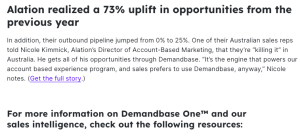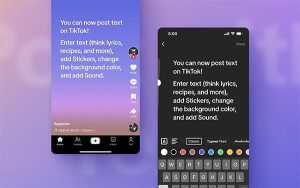Develop Your Small Business’s Growth Strategy with these Hiring Tips
Developing a growth strategy for a small to medium-sized business is a complex, and often time-consuming process. With so much information to evaluate, it’s easy to understand why many business leaders don’t spend enough time considering their hiring processes.
And with small business hiring at an even faster rate than their larger counterparts, these organizations are beginning to identify gaps in their hiring processes.
A small business trends survey reported the biggest challenge in small business hiring was finding skilled workers to do the job. Larger companies have sizeable HR departments, established branding, and a well-defined path to employment. Candidates might not be aware smaller organizations exist and are certainly not seeking out their websites to learn how to apply.
This leads some small businesses to believe that in order to fill an empty seat, they need to hire the first person who comes along.
Top Hiring Tips for Small Businesses to Find Employees Who Will Help Your Organization Grow
Hiring decisions make a huge impact on company culture, effectiveness and overall success. Great people build great organizations, and sometimes doing things the way they’ve always been done is just not good business practice. With the stakes being so high, it’s vital hire the right people. Here are five hiring tips for small businesses to help you find employees who will help your organization grow.
1. Establish Job and Work Expectations Upfront
In an effort to encourage a great candidate to join an organization, it’s only natural for hiring managers to want to paint the best possible picture of the business, highlighting benefits, perks, and positive characteristics of the company culture, like flextime or generous PTO policies.
However, along with the highlights, when hiring for small businesses it’s essential to be equally as up-front about their expectations of employees as well. For example, some businesses require employees to arrive prior to the beginning of a shift and leave promptly when their workday is over, while others encourage employees to use flex-schedules. If failure to meet a certain expectation will influence someone’s perceived performance, they should be made aware of this, upfront.
Additionally, it’s helpful to determine what traits a candidate would need to be effective in the role before the hiring process even begins. For instance, if a small business is hiring a customer service chat representative, he or she should be computer literate and communicate well in writing. Organizations that decide what they need and then find the right employee to fit the role generally find more success than those that hire and then try to make an employee fit the role.
2. Prescreen Candidates with Talent Assessment Tools
Not only should an organization seek out candidates with the right skills, motivations, and abilities, they should also consider how their attitudes and values will mesh with company culture. When an employee fits in with an organization’s culture, they have greater job satisfaction, are more productive, get along better with co-workers and supervisors and are more likely to remain on staff.
Today’s technology allows employers of all sizes to collect and analyze data that will assist with narrowing down the prospect list to include only those who would fit the position well. Fortunately, small and medium-sized businesses, even those without a dedicated recruiting department have access to budget-friendly talent selection tools and can develop personalized questionnaires and diagnostics.
3. Aim for Consistency in the Talent Selection Process
Hiring is not a one-size-fits-all process. Although it is important employees fit in well within the organization, the characteristics of a productive outbound sales representative will likely be different than those of a customer support specialist. Likewise, hiring practices do, and should, vary based on industry, company size and organizational culture.
While each organization must have a system in place to acquire top talent, this does not mean that the organization should rush into hiring without set guidelines in place. Each candidate should go through the same process from screening to onboarding. This process might be slightly different for each role, but should remain consistent for each position. Requiring one candidate to participate in an extensive screening process while another is hired after a phone interview can lead to chaos and dissatisfaction. A uniform hiring process helps employers to make sound choices. This consistency will lower the risk of rushing a “bad-fit” candidate into a role.

styles66 / Pixabay
4. Take Your Time Finding the Right Candidate
There’s no need to settle. The time and financial cost of high turnover far exceeds that of establishing an effective screening and selection process.
5. The Interviewer Should Prepare for the Interview
Just as the interviewee prepares for an interview, so should the interviewer. Once a candidate has made it to this point, an employer might have a general sense of who they are, but a face-to-face meeting should be an influential determining factor. Interviewers should be open and honest about the organization, the role and the expectations for the person who fills it, and ask questions that help to determine if the prospective employee has the passion and experience needed to be effective in the role.
In their haste to fill a role, some employers tell prospects that a job role is more flexible than it really is, or that they are likely to advance when opportunities to do so don’t yet exist. This not only leads to filling the role with someone who does not fit it well, it also breeds contention and lowers morale.
Of course, not every hire will work out perfectly, but with careful planning and comprehensive screening, organizations can save time and money and ensure they reach new heights.
Learn more about how you can find the right candidates for your small business by downloading your free copy of 15 Must-Ask Questions
Business & Finance Articles on Business 2 Community
(27)




